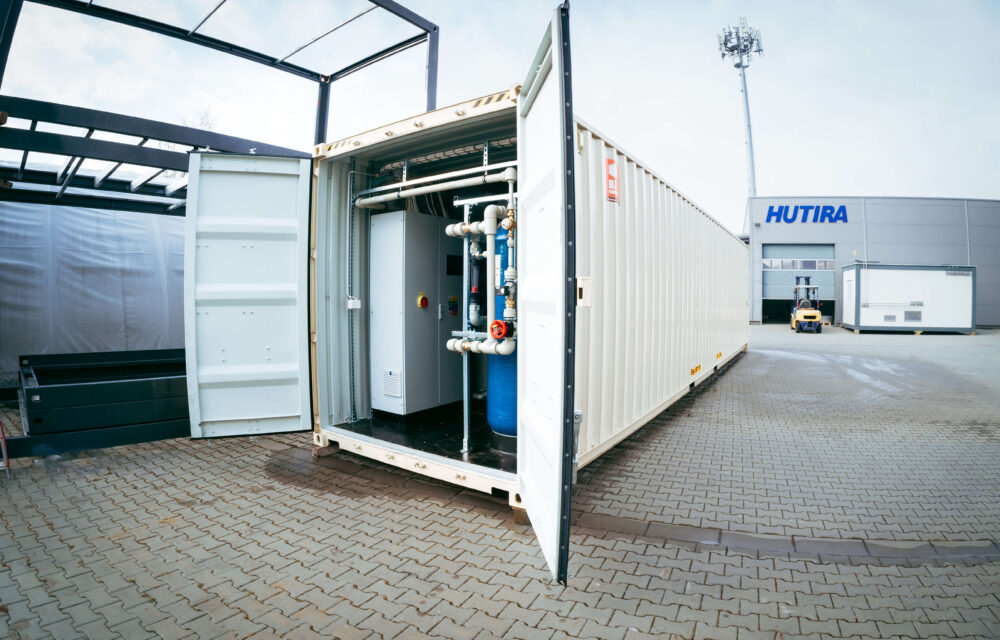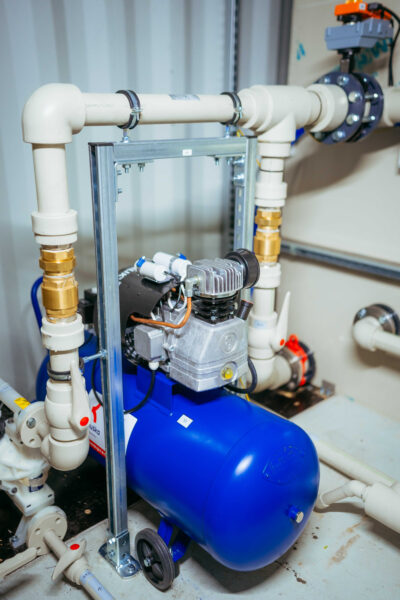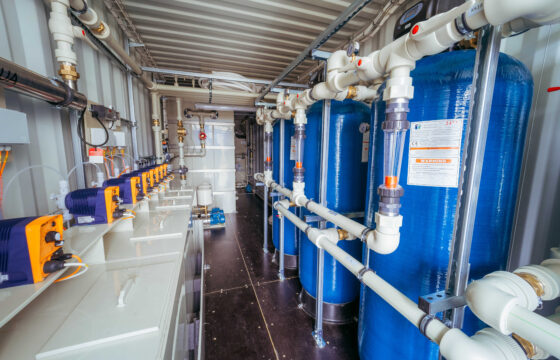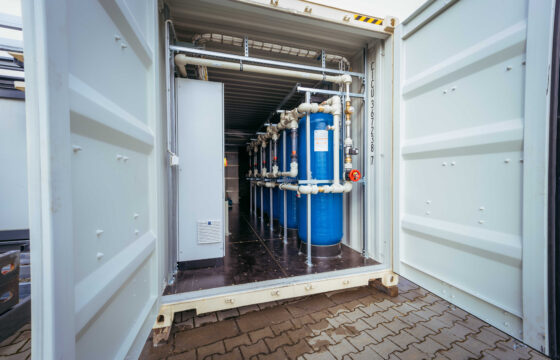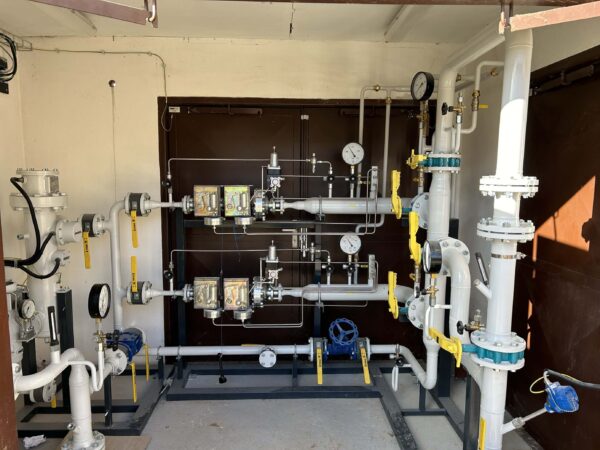31. 1. 2024
The container water treatment plant project in Ghana continues. Our river water treatment technology is heading to Africa
Bringing together business and aid in developing countries. That’s a good concise way to describe the project we started a few years ago in cooperation with companies from S.E.D.A. CONSULTING S. R. O. After several months spent testing and preparing the feasibility study, we shipped the container water treatment plant to the Ghanaian town of Kade on Monday, 12 February. Our technology will help to manage drinking water in the region.
Around the middle of last year, we used a test facility to treat river water in Ghana itself. Based on the test results, we prepared a feasibility study, followed by a final bid and the design of the technology for the customer. “Compared to what we are now delivering to the site, this was a small facility that we used to test the water at the pivotal stage of treatment. That enabled us to design a multi-stage system,” says Petr Hajný, director of HUTIRA’s WATER division. The construction department then began to draw up comprehensive documentation for the production of the technology. “The production process took from September to the end of January, i.e. around five months,” adds Hajný.
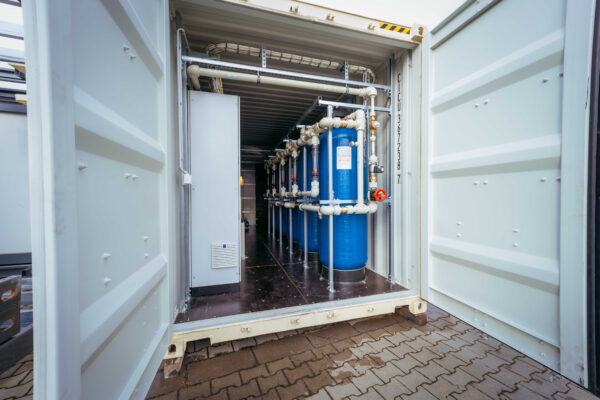
On Monday, 12 February, we shipped a large, forty-foot container from our warehouse, and nine days later we sent another small container to be shipped with the necessary water treatment chemicals and the remaining components. “Due to its size, we had to split the entire shipment into two parts, both of which are already on their way to Ghana,” explains Hajný. The shipping process involved a number of accompanying activities besides cooperation on customs procedures, including communication with the carrier and careful preparation of the technology for the journey by sea, especially ensuring that sensitive parts were thoroughly protected against the effects of sea water.
In April, our team of five will go to Ghana to put this technology into operation and train the operators directly on site. In reality, however, this working group will be a bit larger just in case some employees cannot participate. “We’re preparing for all this right now, and besides obtaining the visas, we also need to get the mandatory vaccinations and book the flight tickets. We’ll be heading off to Kade in the second half of this April and staying for about a fortnight,” says Hajný.
Extensive structural alterations are already underway in Kade. The exact place where our container treatment plant will stand is around three hundred metres from the river. “That means a pipeline needs to be laid and a basic collection facility has to be built by the river. The matter is complicated by the fact that the river there often overflows and causes relatively large floods. So the container will have to stand on massive pillars some one and a half metres in the air, i.e. above the height of the potential ten-year water level,” explains Hajný. The preparations also include regular inspection days via online video calls, during which we remotely transmit information to SEDA AFRICA GROUP employees about how to proceed with the structural alterations.
The negotiations concerning the delivery of our technology took around three years. The project was instigated by our customer, S.E.D.A. CONSULTING S. R. O., which has long been active in the Ghanaian market. “The treatment plant will be part of a larger complex, which will include an above-ground storage bag and a water dispenser to enable people to collect drinking water themselves. Water will then be distributed to other parts of the region in tankers,” says Hajný. There will also be an office complex and a showroom, where our partner’s representatives under the banner of the SEDA AFRICA GROUP will present Czech technologies for the treatment of polluted water and other purposes.
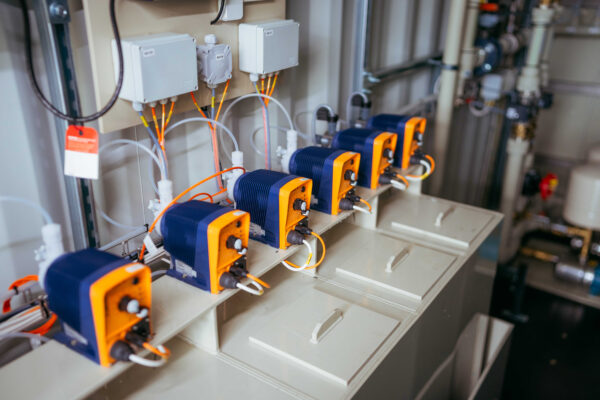
“So this is not a purely humanitarian project, but is a combination of business and aid to those who really need it. Unfortunately, there is a major problem with water in these places. People in this region often use polluted water directly from the local Birim River,” explains Hajný, adding that the town of Kade has received funding from the Czech Ministry of Foreign Affairs in the form of a tied donation. This is intended to fund environmental projects in developing countries.
We believe that this cooperation will also result in other water treatment technology contracts abroad, not only in Ghana. “We have long been trying to establish ourselves on the foreign market, and Africa is a place where drinking water is a major problem and where we want to help people. We see the companies under the S.E.D.A banner as our exclusive business partner, who will represent and promote our technologies commercially. Our forecasts show that Africa has huge business potential,” says Hajný, adding that if this project all goes smoothly, it can attract more investors and stimulate the local market.
